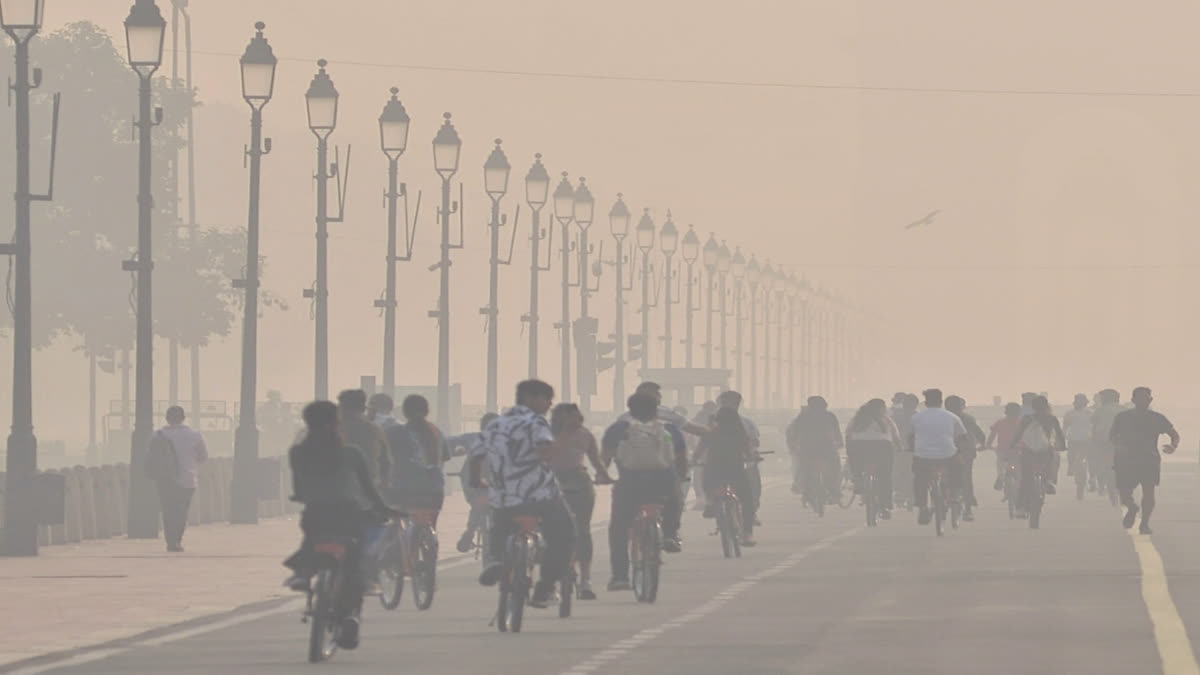Dust, fumes, gas, mist, vapour, particulate matter. With every breath, we inhale these and more. The bad air leaves a metallic aftertaste in our mouths. If the mouth is an indicator, imagine the condition of the body.
The air in most Indian cities has been laden with pollutants for weeks due to stubble burning and festivals. The AQI has reached 'severe', mostly in the North of India.
While the country debates whether it is a day or two of high pollution crackers that filled the skies even after the ban or is it India's everyday lifestyle which doesn't adhere to pollution norms that makes the Air 'unbreathable', experts insist measures need to be taken at the individual level to reduce the impact of pollution on the human body.
How does air pollution impact the human body?
The main pathway of exposure to air pollution is through the respiratory tract. World Health Organization (WHO) says breathing in pollutants leads to inflammation, which causes an imbalance of free radicals and antioxidants. Free radicals are unstable molecules that are produced during natural processes like metabolism and antioxidants are molecules present in food which neutralise these unstable molecules and reduce the damage to the body.
The immunity or the body's ability to fight disease is reduced. There are changes in human cells impacting the lungs, heart, and brain among other organs and ultimately leading to disease. Other organs like skin and eyes are also affected.
WHO also links air pollution exposure with increased risk for adverse pregnancy outcomes (i.e. low birth weight, small for gestational age), other cancers, diabetes, cognitive impairment or mental health problems, and neurological diseases.
"Pollution has both long-term and short-term impacts on the body. Air pollution can increase the risk of heart disease, malignancy, and respiratory diseases like Asthma and Chronic Obstructive Pulmonary Disease (COPD). It can also cause chronic cough and chest infections," said Dr Neeraj Nischal, Additional Professor at the Department of Medicine at AIIMS.
Dr Nischal said people with co-morbidities like diabetes and hypertension and those having cancer are more likely to be affected. "So are the elderly and children," Dr Nischal added.
Is there any safe limit for exposure?
There is no 'safe limit'. Health can occur because of both short-and long-term exposure to air pollutants. WHO says for some pollutants, there are no thresholds below which adverse effects do not occur.
Children, the elderly, and pregnant women are more susceptible to air pollution-related diseases. Experts say blaming one or two days of festivals is not the answer.
"It's not about one day, we have to change our behaviour year-round. Making legislation doesn't help. All of us are actively contributing to pollution every day. Pollution-causing vehicles, construction sites, burning garbage, and stubble burning are major factors," added Dr Nischal.
Dr Nischal's list of 'to-do things'
- Quit Smoking
- Exercise
- Reduce exposure to air pollution, and avoid going out at peak pollution times like mornings and evenings
- If possible sit with windows closed and use air purifiers
- People with Asthma and heart diseases go out with masks
- Those who have hypertension should control their Blood Pressure
- Air pollution can also increase risks of seasonal flu so take your flu shots
- Take a shower after being outside to rinse particles from your skin and hair
- Frequent mopping of floors and wet dusting can also help
Detox Diet
A detoxifying diet that helps combat the harmful impact of polluted air, would be a healthy diet that can boost your immune system, support liver function and neutralise free radicals. It strengthens the body's defence mechanism and helps fight diseases that are aggravated due to challenging environments.
Make sure your everyday food includes
- Spices and condiments like garlic, ginger, and turmeric
- Green leafy vegetables
- Berries
- Cruciferous vegetables like broccoli, and cauliflower
- Beetroot and avocado
- Lean proteins like chicken and fish
- Citrus foods like lemons and oranges



